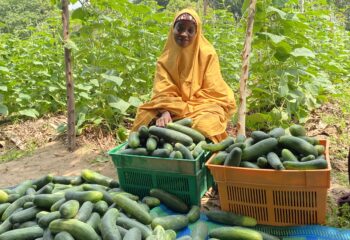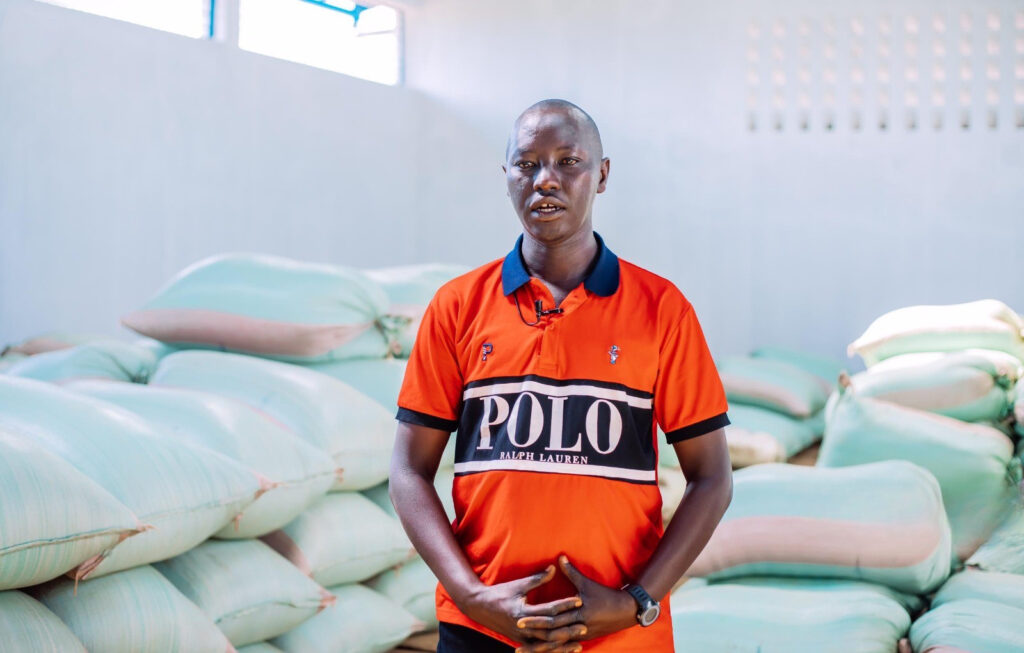
The Private Seed Sector Development (PSSD) project, implemented by the International Fertilizer Development Center (IFDC) and funded by the Embassy of the Kingdom of the Netherlands, is transforming the agricultural landscape in Burundi. Since 2018, PSSD has played a critical role in increasing the production and incomes of 178,000 farmer households by fostering a private sector-led seed industry.
Building on the successes of its first phase, the project has now entered its second phase – PSSD2 – which aims to support an additional 226,000 farm households with access to certified seed by December 2026.
Beyond the direct benefits to seed entrepreneurs, these interventions have also created jobs for 593 workers – 51% of whom are women – to provide vital income for families.
Evaluation reports from the project revealed that farmers in Burundi have limited access to seed storage and irrigation infrastructure. Lack of storage facilities often results in seed rotting, reducing both quality and quantity, while the lack of irrigation during the dry season severely affects productivity, preventing farmers from achieving optimal yields.
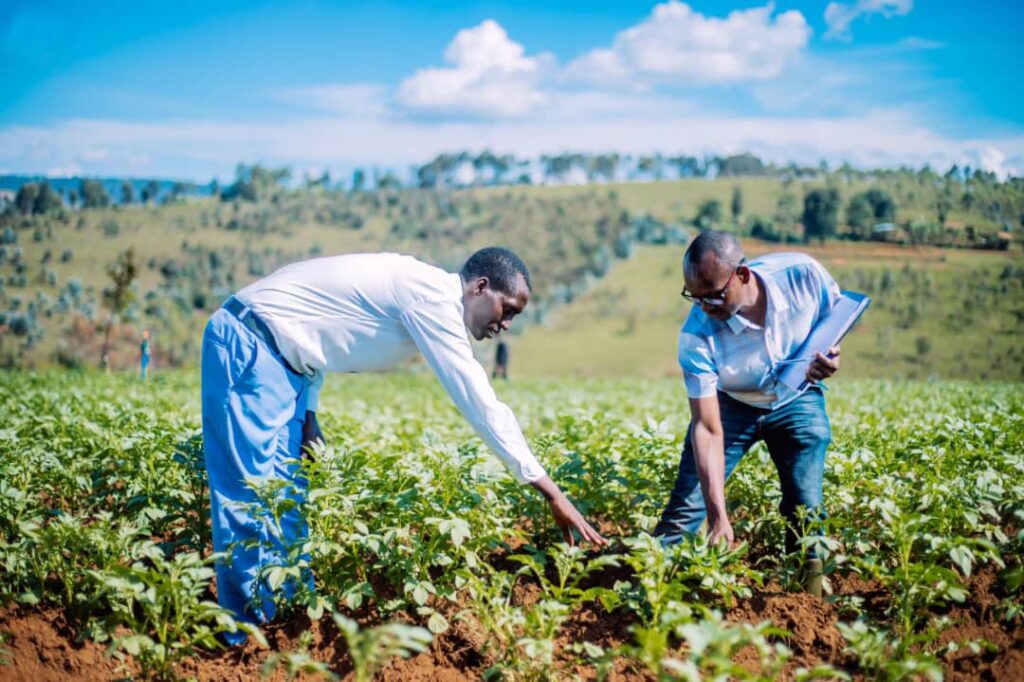
Farmers who rely on traditional storage methods and rain-fed agriculture are left vulnerable to significant losses and unpredictable weather patterns. While some farmers have facilities to store up to 150 metric tons (mt) of seed, they nevertheless frequently lose up to 10% of their harvest due to poor storage conditions.
Similarly, seed production drastically falls during dry seasons, with some farmers producing as little as 103 mt annually – only around a third of what they could produce with the addition of irrigation.
To mitigate the storage challenges, IFDC, through the PSSD project, co-financed the construction of four storage and drying sheds in Gitega and Rutana provinces, at a cost of 440 million Burundian francs (U.S. $148,195). With a combined storage capacity of 400 mt, these facilities will help to protect seeds from rotting and ensure better preservation.
In addition, IFDC supported the construction of three water tanks in Karusi, Rutana, and Bururi provinces. These tanks, each holding over 3,100 cubic meters (m³) of water, enable irrigation during the dry season, ensuring consistent seed production.
The impact of these interventions has been significant. The new storage facilities have more than doubled seed storage capacity while reducing losses by at least 10%.
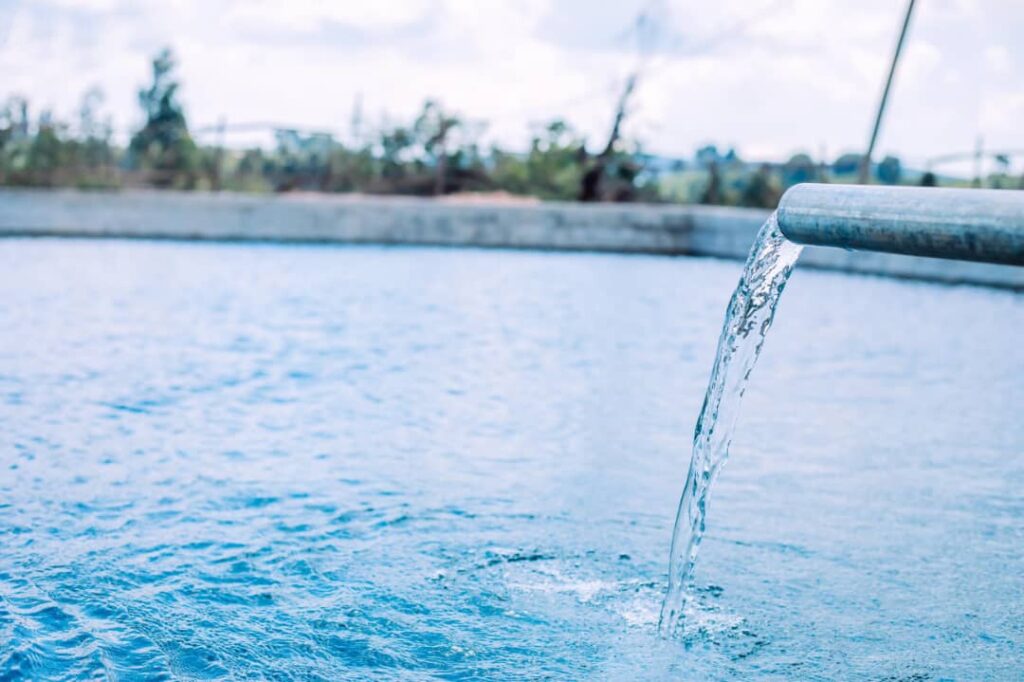
“These sheds will enable us to store more than 400 tons of seeds, whereas the old sheds only stored around 150 tons.”
Spéciose Gacoreke, PSSD Partner and seed entrepreneur from Gitega Province
The irrigation systems have also tripled seed production, increasing yields from 103 mt to over 300 mt annually. Frère de la Miséricorde, a PSSD partner from Karusi, observed that crops can now be grown without relying solely on rain, stating, “These tanks have enabled us to produce during the dry and short rain seasons.”
Beyond the direct benefits to seed entrepreneurs, these interventions have also created jobs for 593 workers – 51% of whom are women – to provide vital income for families. Public water fountains along irrigation pipelines have also improved access to clean drinking water for surrounding communities.
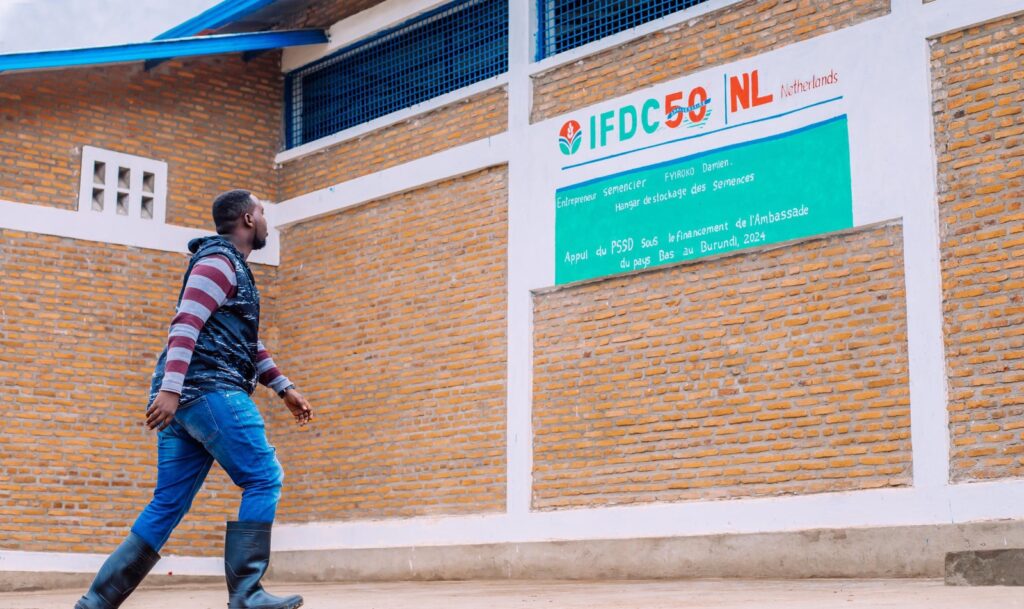
PSSD2 will build on this success by scaling efforts to reach more farmer households with certified seeds and extension services. By investing in innovative solutions, including infrastructure and distribution strategies, IFDC is strengthening the seed industry and empowering farmers to increase their productivity and resilience.
Beneficiaries have expressed their gratitude for IFDC’s support and highlighted the need for additional irrigation infrastructure to further enhance their farming practices.
With continued support and collaboration, IFDC is ensuring that smallholder farmers in Burundi can achieve long-term food security, improve their livelihoods, and contribute to the growth of the agriculture sector.
The Private Seed Sector Development (PSSD) project (2018-2026), funded by the Dutch Ministry of Foreign Affairs and implemented by the International Fertilizer Development Center (IFDC), aims to increase the production and incomes of 178,000 farmer households in Burundi. The project works with private and public sector partners to promote the development of a private sector-led seed industry that is able to provide farmers with sustainable access to high-quality seed and agricultural advisory services.




